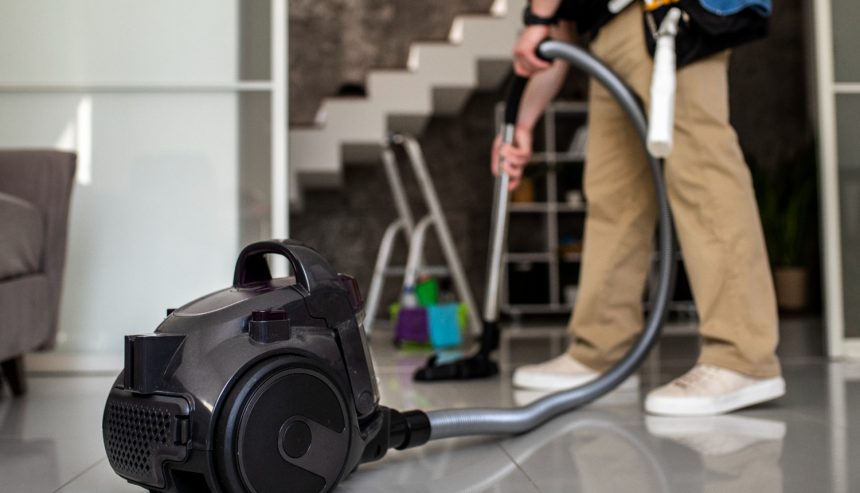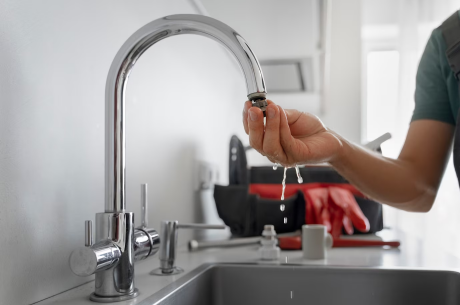Basement flooding can be a huge problem in many parts of Florida. With heavy rains, hurricanes, and rising water tables, basements are at a higher risk of flooding. When water enters your basement, it can cause lots of damage and create unhealthy living conditions. Understanding the causes and knowing how to respond can save you time, money, and stress.
In Florida, one major cause of basement flooding is the heavy rainfall during the wet season. Another common cause is hurricanes, which can bring more rain in a short period than the ground can absorb. Poor drainage systems and high water tables also make basements more vulnerable to flooding.
Knowing what to do when your basement floods is very important. Acting quickly can reduce damage and prevent mold growth. Preparing ahead with long-term solutions and having the right equipment ready can also help you handle floods more effectively.
Understanding the Causes of Basement Flooding in Florida
Florida’s wet seasons and hurricane activity make basement flooding a real concern. One of the primary causes is heavy rainfall. Florida experiences intense rain showers, especially during the summer months. When the ground is already saturated, it can’t absorb any more water, which then seeps into basements.
Hurricanes are another major cause of flooding. These powerful storms can dump huge amounts of water in a short period, overwhelming drainage systems and causing water to back up into homes. Even if your home is not directly in the path of a hurricane, the extensive rain associated with these storms can still lead to basement flooding.
Another factor is Florida’s high water table. The water table is the level below ground at which the soil is fully saturated with water. In many parts of Florida, the water table is very close to the surface, so even a small amount of rain can cause water to rise into basements. Poor drainage systems and grading around homes can exacerbate this problem, funneling water directly into areas that are meant to stay dry. Understanding these causes can help homeowners prepare and take preventive measures against basement flooding.
Immediate Steps to Take When Your Basement Floods
When your basement floods, acting quickly is crucial. Here are the immediate steps you should take:
1. Ensure Safety First: Before entering a flooded basement, turn off the power to avoid electrical hazards. If there’s standing water, never touch electrical outlets or appliances. If you’re unsure how to safely turn off the power, call an electrician.
2. Stop the Water Source: Identify and stop the source of the water if possible. This could involve shutting off the main water valve if a pipe has burst. If the flooding is due to rain, wait until the storm passes before addressing the water problem.
3. Remove Water: Use a sump pump, wet/dry vacuum, or buckets to remove the standing water. Speed is essential to minimize damage and reduce the risk of mold growth. Open windows and use fans to help dry out the area.
4. Move and Protect Belongings: Move furniture, electronics, and personal items to a dry area. Use plastic sheets to cover anything that can’t be moved to protect it from further water damage.
5. Document Damage for Insurance: Take photos and notes of the damage for your insurance claim. Documenting everything thoroughly can help when you file your claim and seek reimbursement.
These steps help mitigate immediate damage and set the stage for a more thorough cleanup. Speed and safety are key when dealing with a flooded basement.
Long-Term Solutions for Preventing Basement Flooding
Preventing basement flooding requires some strategic planning and investment. Here are some long-term solutions to consider:
1. Install a Sump Pump: A sump pump can be a lifesaver during heavy rains. It collects and pumps out water that gathers in a sump pit, keeping your basement dry. Make sure it has a battery backup so it works even during power outages.
2. Improve Drainage Around Your Home: Ensure your yard slopes away from your home’s foundation. Install downspout extensions to direct rainwater away from the house. Consider adding French drains or other drainage systems to manage excess water.
3. Waterproof Your Basement: Seal cracks and gaps in walls, floors, and around windows. Apply waterproof coatings to walls and floors to create an extra barrier against water seepage.
4. Maintain Gutters and Downspouts: Regularly clean your gutters to prevent clogs. Make sure downspouts are clear and directing water away from your home.
5. Elevate Utilities: If possible, elevate furnaces, water heaters, and electrical panels off the basement floor. This reduces the risk of damage and maintains functionality during minor floods.
These solutions can help fortify your home against future flooding, giving you peace of mind during Florida’s rainy seasons.
Essential Equipment and Tools for Basement Flood Recovery
When dealing with a flooded basement, having the right equipment is essential. Here’s a list of must-have tools for effective flood recovery:
1. Wet/Dry Vacuum: This is useful for removing small amounts of water from floors, carpets, and furniture.
2. Sump Pump: A reliable sump pump helps remove larger volumes of water quickly. Always have a backup in case your primary pump fails.
3. Dehumidifier: This helps dry out the air and surfaces, reducing the risk of mold growth. It’s especially useful in humid climates like Florida.
4. Fans: High-powered fans can speed up the drying process by improving air circulation throughout the basement.
5. Disinfectants and Cleaners: After removing the water, it’s crucial to clean and disinfect all affected areas to prevent mold and bacteria growth.
6. Protective Gear: Wear gloves, masks, and waterproof boots to protect yourself from contaminants and debris during cleanup.
By having these tools on hand, you can respond quickly to basement flooding and reduce the damage and health risks associated with standing water.
Conclusion
Dealing with basement flooding in Florida is a serious issue, given the state’s heavy rains and hurricane activities. Understanding the causes and taking immediate steps when flooding occurs can greatly reduce damage and protect your home. Investing in long-term prevention methods and having the right equipment ready will prepare you for future floods.
Remember, the faster and more efficiently you react, the less impact flooding will have on your home and health. If you need expert help with residential water damage restoration in Naples, PuroClean of Naples is here to assist you. Our team is dedicated to restoring your home quickly and effectively. Contact PuroClean of Naples today for all your water damage and restoration needs.




 PuroClean of Naples
PuroClean of Naples